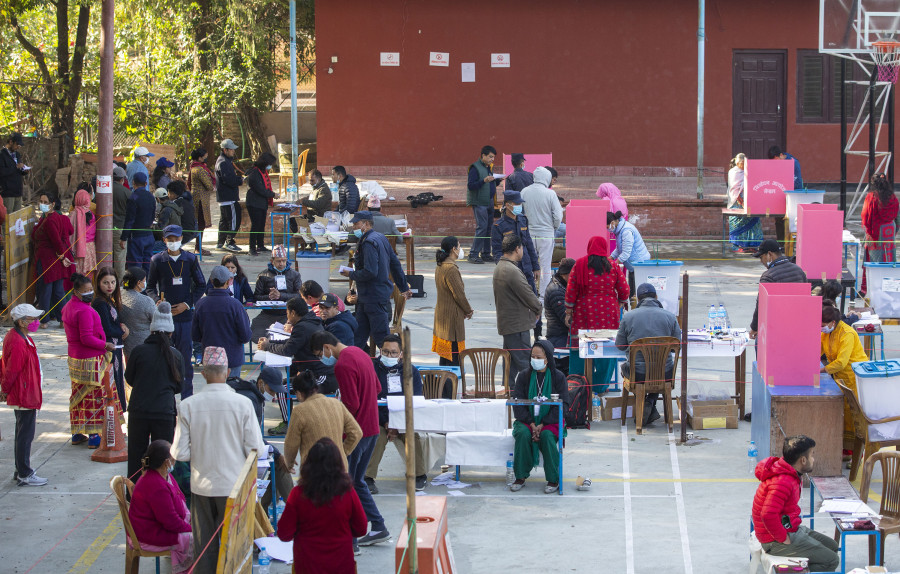Columns
The mavericks are coming
The parties should get the message that the Nepali people are getting tired of their ways.
Achyut Wagle
Nepal passed an important milestone with the successful completion of the federal Parliament and Provincial Assembly elections on November 20, the second cycle of polls after the promulgation of the 2015 Constitution. The second municipal elections under the new constitution concluded six months ago. The participation of political parties of all ideologies—left, right, centre and sans ideologies—and independents in these elections shows their faith in the adult franchise-based competitive politics and representative governance. All avowed communist outfits except the Communist Party of Nepal (Biplav) were there, something unheard of elsewhere in the world. The voting was largely peaceful indicating that federal republicanism had attained maturity.
The election campaign appeared less boisterous than before due to the ban by the Election Commission on putting up posters, hanging banners, issuing pamphlets and using sound trucks. These restrictions have also been blamed for the subdued enthusiasm among voters, and the resultant low turnout. The Election Commission has estimated that about 61 percent of eligible voters cast their ballots, about 6 percentage points less than in the local elections in May.
Electoral reform
Despite some optimism over the consolidation of the political system by the timely holding of elections, long overdue electoral reforms have prevented them from being more effective, inclusive and fair. Transparency regarding the source of funding and the amount of money spent by the candidates remains the central issue. Verification is nearly impossible, but social media has been filled with allegations of “vote buying” by politicians. The average “investment” by a single candidate is estimated to have crossed Rs50 million.
There is no law regulating the collection of campaign finance, nor are there monitoring mechanisms to prevent candidates from engaging in open vote buying. Maintaining books of accounts and getting them audited are unknown in any political party, big or small, new or old. This has led to candidates raising political donations from people with dubious interests expecting higher returns if they get elected. This sets the stage for future policy corruption and criminalisation of politics long before Parliament is formed.
Enabling eligible voters stationed abroad, particularly migrant workers, to exercise their voting rights still remains an unresolved issue. According to the latest census data, about 2.17 million Nepalis are based abroad. Unofficial estimates put the figure closer to 4 million. They don't get to vote for lack of mechanisms like absentee ballots, postal voting and internet voting. The use of electronic voting machines has long been talked about, but implementation is a long way off. Manual vote counting is time consuming, and often leads to rows over validating ballot papers with multiple or unclear stamps on them. Lack of voting opportunities for the millions living away from home may be one of the reasons for the low turnout. The use of technology might substantially reduce the costs of security and logistics management.
Complex process
The voting process is complex. The voter is given four ballot papers—one ballot paper for first-past-the-post and one ballot paper for proportional representation for the federal Parliament, and a similar set for the Provincial Assembly. Each is filled with a bewildering array of election symbols representing a political party or independent candidate. The complexity calls for an intensive awareness campaign and proper voter education, particularly in remote and backward areas. Many voters might have skipped casting their ballot papers for fear of committing a faux pas.
The Election Commission did not develop publicity and educational materials in different languages. There were no voting assistance guidelines directed at social groups like women, senior citizens and differently-abled. The commission also appeared to be ineffective in “educating” the parties and candidates about the importance of adhering to the election code of conduct and the consequences of not doing so.
The warnings and actions taken by the commission against candidates violating the code of conduct appeared to be more a media stunt than a genuine effort to ensure fairness in the elections. The annulment by the commission of the candidacy of Toshima Karki, which the Supreme Court later reinstated, dented the credibility and impartiality of the constitutional body.
This parliamentary election seems to be different from previous editions because of the unconventional entrants who were able to make their presence felt among the electorate, the youths in particular. The country will have to wait for the final voting results to see how well these individuals have done; but regardless of the outcome, the traditional political parties that have taken the helm by turn should get the message that the Nepali people are getting tired of their ways. It is perhaps time for politics and the election patterns to begin to change.




 18.12°C Kathmandu
18.12°C Kathmandu















